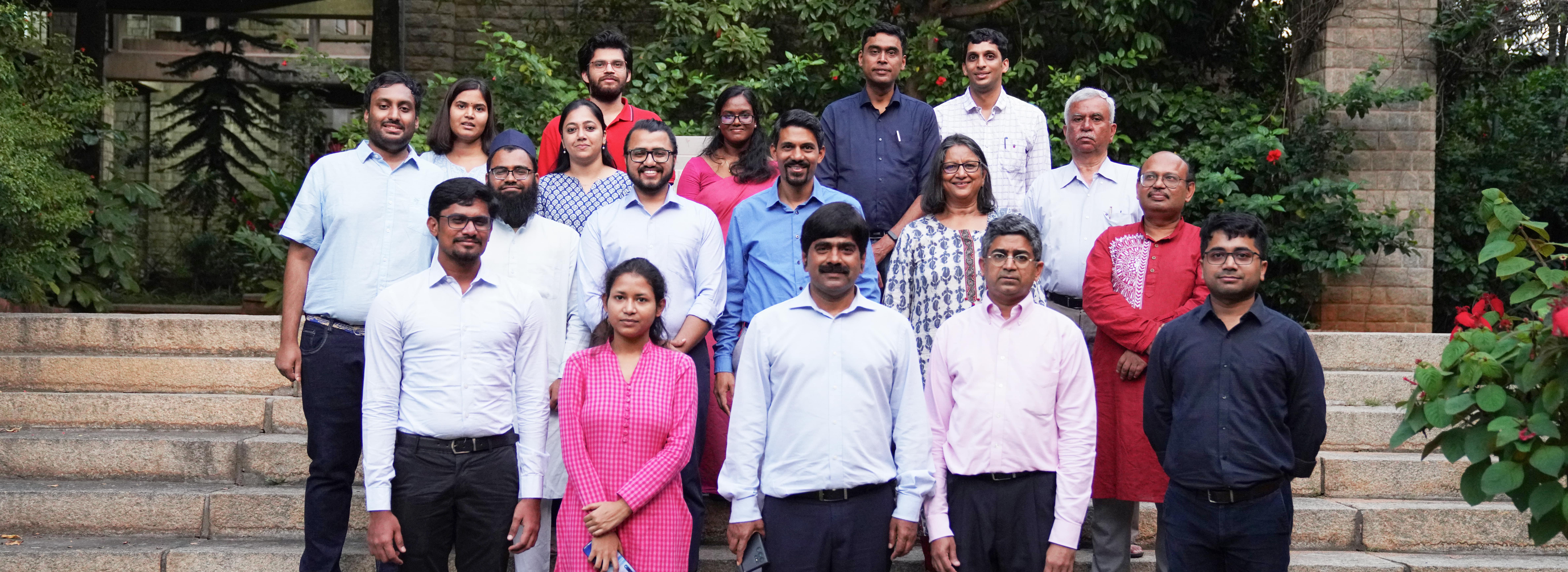Decision Sciences
The Decision Sciences area carries out research, teaching, and consulting activities in theoretical and applied statistics, optimization theory, business analytics, machine learning, artificial intelligence, big data methodologies, and related applications to management problems. Faculty in the Decision Sciences area work closely with both industry and government sectors and conduct theoretical and applied research across the entire decision sciences spectrum.
Research Overview
Using real-world scenarios arising from business, government and societal challenges, Professor Jitamitra Desai emphasizes the relevance and role of path-breaking research in Decision Sciences in a data-driven world.
Decision Sciences area PhD candidate Kunal Rai develops nonparametric statistical methods and physics-informed neural networks to analyze time series data. His research refines high-dimensional quantile estimation, to understand price movements, risk variability and wider themes of climate change through shifting rainfall patterns—offering sharper, more adaptive tools for modern uncertainty.
Research Spotlight
With rising competition, popularity, and financial stakes, forecasting and strategic decision-making have become integral to modern sport. As data and tech provide a fillip, the demand for predictive capabilities has further grown. Decision Sciences area PhD candidate Chinmay Jayant Divekar’s thesis applies mathematical frameworks to in-game challenges. He proposes a novel framework for predicting English Premier League matches— a tool he sees as valuable for both audience engagement and managerial decision-making.
As financial markets swing unpredictably and climate patterns grow erratic, understanding risk and uncertainty has never been more critical.
Decision Sciences area PhD candidate Kunal Rai develops nonparametric statistical methods and physics-informed neural networks to analyze time series data. His research refines high-dimensional quantile estimation, to understand price movements, risk variability and wider themes of climate change through shifting rainfall patterns—offering sharper, more adaptive tools for modern uncertainty.
|
Student |
Dissertation Title |
Year |
| Antra | Enhancing Patient Care with Predictive Analytics: Early Identification of Code Blue Events, Fall Detection, and IVF Success Prediction | 2025 |
| Kapil Gupta | Analysing House Price Dynamics using Novel Spatio-Temporal Methods | 2025 |
| Murari Srihari Srinivasa | Building Last-mile Connectivity to Urban Public Transit Systems (A Decision Sciences Perspective) | 2025 |
| Md Shahrukh Anjum | Improving the Solvability of Combinatorial Optimization Problems | 2024 |
| Akshita Srivastava | Essays on Warranty Claims | 2023 |
| Anchal Soni | Methods of Analyzing Structural Breaks in Multivariate Time Series: Applications to Financial Data | 2023 |
| Aishvarya | Essays on Evaluation of Skill Dominance, Game Design and Online Community of Daily Fantasy Sports | 2023 |
|
Giriraj |
Time Series Clustering, Testing of Memory in Time Series and Quantifying Dependence in Volatility of Financial Time Series Using Complex Network Theory |
2022 |
|
Pranjal Chandrakar |
Evaluation of Policies to Auction, Retain and Value Players Services in IPL and other Sports Tournaments |
2021 |
|
Nandini Seth |
Essays on Next Best Action in Digital Marketing Using Reinforcement Learning |
2021 |
|
Saparya Suresh |
Some New Stochastic Processes with Applications in Finance and other Areas |
2020 |
|
Anupama Lakshmanan |
Forecasting Time Series with Multiple Levels of Seasonality |
2020 |
|
Tapan Kar |
On the More Powerful Unit Root Test |
2019 |
|
Ravi Prakash Ranjan |
Essays on Models using Google Search Trends |
2019 |
|
Student |
Dissertation Title |
| Chinmay Jayant Divekar | Novel Methods for Within-Game Analytics Problems in Sports |
|
Kunal Rai |
Nonparametric Time Series Analysis in Univariate and Multivariate Settings under Modified Kernel Functions |
|
Boggadi Sudheer Kumar Reddy |
Second-Order Cone Programming (SOCP)-Based Constructs for Solving Mixed-Integer Programms with Applications to Batch Scheduling Problems |
| No. | Course Name |
| 1 | Probability Theory |
| 2 | Mathematical Methods for Management Research |
| 3 | Linear programming and Networks |
| 4 | Nonlinear Programming |
| 5 | Statistical Inference |
| 6 | Multivariate Statistics |
| 7 | Integer Programming and Combinatorial Optimization |
| 8 | Stochastic Models |
| 9 | Computational Optimization |
| 10 | Advanced Statistical Methods and Computing |
Click here for brochure
To learn more about faculty in the area click here

